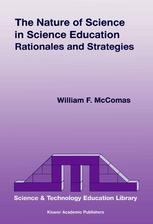

Most ebook files are in PDF format, so you can easily read them using various software such as Foxit Reader or directly on the Google Chrome browser.
Some ebook files are released by publishers in other formats such as .awz, .mobi, .epub, .fb2, etc. You may need to install specific software to read these formats on mobile/PC, such as Calibre.
Please read the tutorial at this link: https://ebookbell.com/faq
We offer FREE conversion to the popular formats you request; however, this may take some time. Therefore, right after payment, please email us, and we will try to provide the service as quickly as possible.
For some exceptional file formats or broken links (if any), please refrain from opening any disputes. Instead, email us first, and we will try to assist within a maximum of 6 hours.
EbookBell Team

4.4
102 reviewsOurpredilection for premature acceptance and assertion, ouraversionto suspendedjudgment, are signs that we tend naturally to cut short the process oftesting. We are satisfied with superficial and immediate sho- visioned applications. . . . Science represents the safeguard ofthe race againstthese natural propensities and theevilswhich flow fromthem. . . . It isartificial (an acquired art), notspontaneous; learned, notnative. To this fact is due the unique, the invaluable place of science in education. (Dewey 1916, p. 189) Some, with a more narrow focus, maintain that if we want students to learn and become competent in science, then they must be taught something about the nature of science. For instance, Frederick Reif in a recent publication, has said: Alltoo often introductory physics courses ‘cover’ numerous topics, but theknowledge actually acquired by students is often nominal ratherthan functional. If students are to acquire basic physics knowledge. . . It is necessary to understand better the requisite thought processes and to teach these more explicitly. . . . if one wants to improve significantly students’ learning of physics. . . . It is also necessary to modify students’ naive notions about the nature of science. (Reif 1995, p. 281) Curriculum documents in the US (especially Project 2061 and the National Science Standards), Canada (especially Science for Every Student), and Europe (particularly those from UK, Denmark, and Spain) are giving increased prominence to students understanding the nature of science.